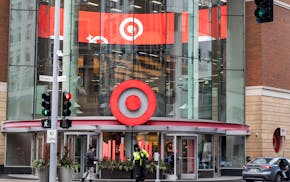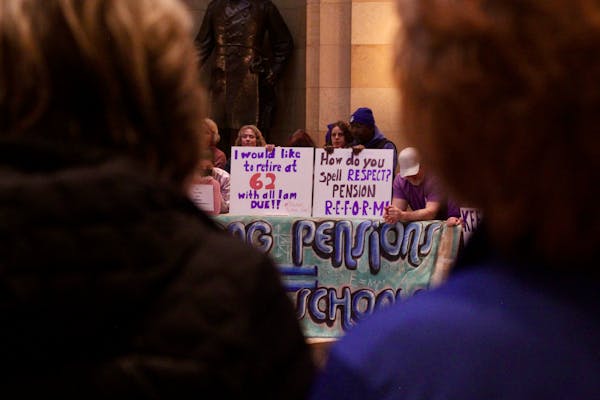You always need more money than you think you will.
It's the lesson every entrepreneur learns.
And even if we don't own a business, it's a lesson many of us learn in the work we do. Some of us learn it when we try to maintain our homes or cars, or raise a child.
For Ted Leavitt and two other former Pillsbury executives, it's the lesson from their attempt to resurrect a longtime staple of the Minnesota food scene — RyKrisp crackers.
"We went in with our eyes open," Leavitt said. "I thought it was good."
The trio in 2015 bought the RyKrisp trademark shortly after ConAgra decided to stop making the crackers, which were based on the crispbread carried to the Midwest by Scandinavian immigrants in the 19th century.
They also bought the equipment, which was in a factory in southeast Minneapolis that had been producing varieties of RyKrisp crackers since 1926. But they decided not to rehire the staff and resume production.
Instead, they contracted with a commercial baker in the Chicago area and moved the equipment there. That's when the trouble began.
"It's disappointing. You know you'd love to be able to satisfy the consumers out there," Leavitt said.
The dispute between RyKrisp's new owners and the commercial baking company started before production ever resumed. Leavitt's group ultimately decided to turn to a second baking company to make the crackers.
But the first one would not turn over the equipment that had been moved from Minneapolis unless it was paid $50,000 more than the two sides had initially agreed.
A court fight followed and, in 2019, an Illinois jury awarded the new RyKrisp owners an $8 million judgment.
That was more than the commercial baker could afford. There have been efforts to settle, but a new round of lawsuits has started with the baker's insurance company. To date, no money has changed hands. And the RyKrisp owners need funds to get production going again.
"When our equipment was taken, we didn't have a manufacturer and, you know, we're a small, small company and we needed enough money to restart," Leavitt said.
They considered seeking out other investors. But he said, "I think the real way to do this is by getting to a proper conclusion with this particular saga."
Crispbreads are cheap and filling and don't spoil, which made them perfect for hauling on a long journey in the 19th century.
RyKrisp crackers, about 4 inches long and 2 inches wide, were only 25 calories and provided a sturdy base for cheeses, butters and jellies. The crackers reached their peak of popularity in the 1950s and 1960s, helped at the time by ad campaigns and slogans that are embarrassments today. "No one loves a fat girl," one RyKrisp ad read in the 1940s.
Started by a Swedish baker in 1899, RyKrisp crackers were produced in a St. Paul bakery for about 20 years. The company that eventually became Ralston Purina bought the business in 1926 and set up the larger factory in southeast Minneapolis.
ConAgra had owned the brand just a couple of years before executives decided in 2015 to stop selling the crackers. Sales amounted to just a few million dollars at the time. The crackers were being baked in an oven that had been installed in 1947.
On reflection, Leavitt said he wishes his team had decided to let the old equipment go and just hire a baking company to produce RyKrisps on modern machines.
"I have said to myself if we did it again, we really would update the equipment rather than have a mixer that comes from the mid-1960s," he said.
When I asked if he was sorry that he and his team had bought the business, he quickly said no. "That's a kind of easy, cheap discussion to have," he said. "We haven't done it."
He said he believes RyKrisp is "on trend" in food these days and would again find a following. It would face competition chiefly from crackers that are imported from Scandinavia, like Leksands, Siljans and Wasa.
The RyKrisp team produced new packaging and is prepared to re-enter the market. "It's a fairly healthy cracker, low calorie, a taste and texture that makes it interesting," Leavitt said. He said it's not a no-gluten cracker, though, he added.
He and the team maintain a website — rykrisp.com — but only rarely update it.
"I started three companies and they've all had their challenges," he said. "Unless you're in tech and people throw money at you, you always need a little bit more money than you have."

Ramstad: Readers say Walmart won't be paying the ultimate price of Trump's tariffs

Ramstad: Gov. Walz, things are not getting done in Minnesota

Ramstad: AI is English-centric, but it's picking up Hmong quickly

Ramstad: Minneapolis' Camden neighborhood is rising. Houston White wants to keep it that way.



